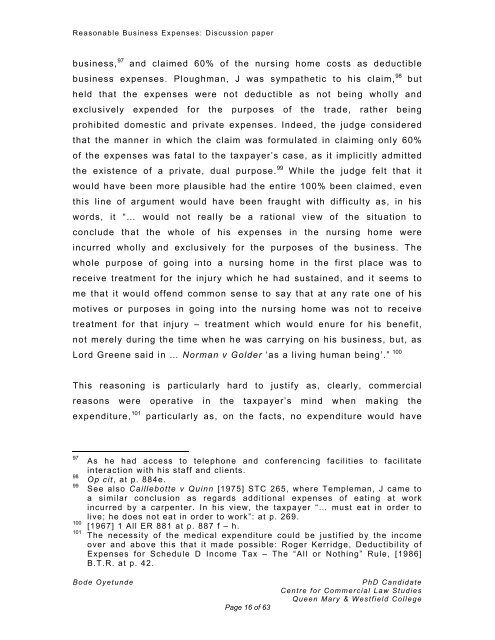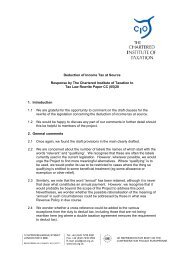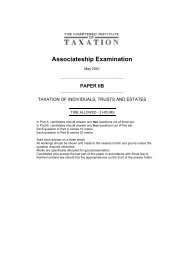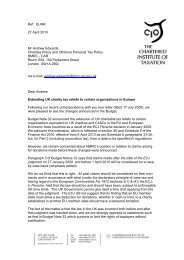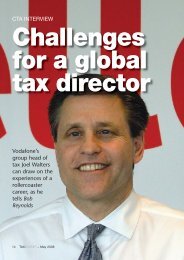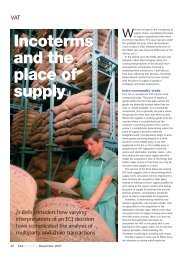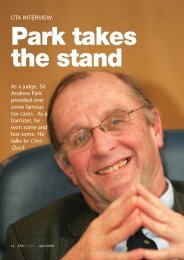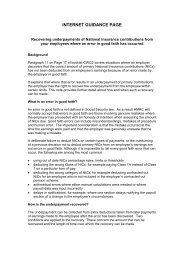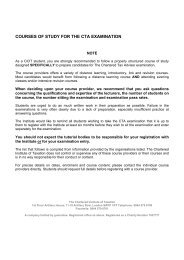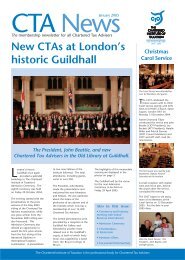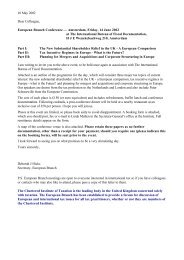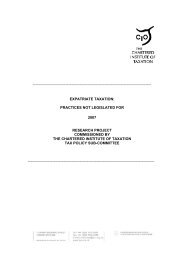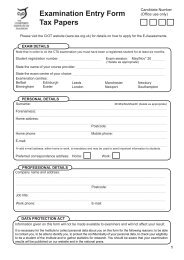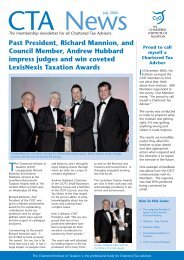Reasonable Business Expense - The Chartered Institute of Taxation
Reasonable Business Expense - The Chartered Institute of Taxation
Reasonable Business Expense - The Chartered Institute of Taxation
You also want an ePaper? Increase the reach of your titles
YUMPU automatically turns print PDFs into web optimized ePapers that Google loves.
<strong>Reasonable</strong> <strong>Business</strong> <strong>Expense</strong>s: Discussion paperbusiness, 97 and claimed 60% <strong>of</strong> the nursing home costs as deductiblebusiness expenses. Ploughman, J was sympathetic to his claim, 98 butheld that the expenses were not deductible as not being wholly andexclusively expended for the purposes <strong>of</strong> the trade, rather beingprohibited domestic and private expenses. Indeed, the judge consideredthat the manner in which the claim was formulated in claiming only 60%<strong>of</strong> the expenses was fatal to the taxpayer’s case, as it implicitly admittedthe existence <strong>of</strong> a private, dual purpose. 99 While the judge felt that itwould have been more plausible had the entire 100% been claimed, eventhis line <strong>of</strong> argument would have been fraught with difficulty as, in hiswords, it “… would not really be a rational view <strong>of</strong> the situation toconclude that the whole <strong>of</strong> his expenses in the nursing home wereincurred wholly and exclusively for the purposes <strong>of</strong> the business. <strong>The</strong>whole purpose <strong>of</strong> going into a nursing home in the first place was toreceive treatment for the injury which he had sustained, and it seems tome that it would <strong>of</strong>fend common sense to say that at any rate one <strong>of</strong> hismotives or purposes in going into the nursing home was not to receivetreatment for that injury – treatment which would enure for his benefit,not merely during the time when he was carrying on his business, but, asLord Greene said in … Norman v Golder ‘as a living human being’.” 100This reasoning is particularly hard to justify as, clearly, commercialreasons were operative in the taxpayer’s mind when making theexpenditure, 101 particularly as, on the facts, no expenditure would have979899100101As he had access to telephone and conferencing facilities to facilitateinteraction with his staff and clients.Op cit, at p. 884e.See also Caillebotte v Quinn [1975] STC 265, where Templeman, J came toa similar conclusion as regards additional expenses <strong>of</strong> eating at workincurred by a carpenter. In his view, the taxpayer “… must eat in order tolive; he does not eat in order to work”: at p. 269.[1967] 1 All ER 881 at p. 887 f – h.<strong>The</strong> necessity <strong>of</strong> the medical expenditure could be justified by the incomeover and above this that it made possible: Roger Kerridge, Deductibility <strong>of</strong><strong>Expense</strong>s for Schedule D Income Tax – <strong>The</strong> “All or Nothing” Rule, [1986]B.T.R. at p. 42.Bode OyetundePage 16 <strong>of</strong> 63PhD CandidateCentre for Commercial Law StudiesQueen Mary & Westfield College


